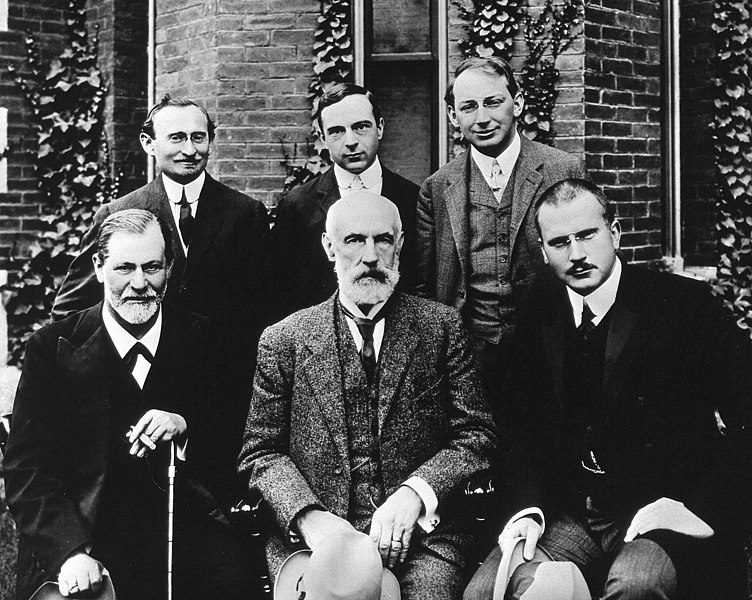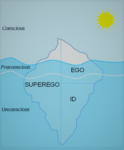Table of Contents
Background

Freud is the author of several influential books including Civilization and its Discontents and Totem &Taboo. But he was a medical doctor, not a psychologist.
This explains the controversy around his ideas. But he was the first to systematically study the unconscious. His ideas led to the Neo-Freudians (Jung, Horney, Adler, Erikson).
id, ego, superego

90 percent of our mind is unconscious – mental activity we are unaware of. Unacceptable urges are repressed in the unconscious.
The id comprises of our basic animal instincts, it craves instantaneous gratification, and it operates on the “pleasure principle.”
The superego and ego help control the id. The superego is our moral conscience that warns us of bad behavior, it induces feelings of guilt when we miss our idealistic goals.
The ego is the self, and it is the rational voice within us that other people see. It operates under the “reality principle” and balances the demands of the id and ego. A healthy person has a strong ego that can do this job well. Someone dominated by their id may become impulsive or narcissistic. A weak superego may result in psychopathic behavior, while a superego that is too strong can lead to unemotional behavior, rigidity, neuroticism, and lack of pleasure.
Defense Mechanisms
Denial: John refuses to admit he is addicted to gambling, even though he frequents the casino.
Displacement: When John’s girlfriend, Sarah, confronted him with his problem, he took out his anger on his sister.
Projection: John is invited to play poker at a friend’s house, he believes they will cheat, so he decides to cheat.
Rationalization: After a few years, John finds himself in debt, but he tells his friends that it was the bad economy that led to his situation.
Reaction formation: Sarah does not leave John, because she is too attached to him. When he says that the bad economy was the cause of their situation, she agrees – although deep down, she doesn’t.
Repression: John was abandoned by his father as a child, but when Sarah asks him about his childhood, he doesn’t remember this happening.
Sublimation: After years of struggling, John redirects the hatred he had towards his family and friends who criticized him constantly, by learning to play the guitar, and eventually teaching others to do the same.
The overuse of defense mechanisms is pathological.
Psychosexual Development
During childhood, there are three events that can unconsciously influence the child’s psyche as an adult. The first is the oral stage, if the child is not given enough time, or given too much time, to wean off the breast or bottle, they tend to develop tendencies towards smoking, drinking, or overeating as adults.
The second is the anal stage. A strict toilet training experience leads to perfectionistic, overly neat adults. Training that is too lax leads to frivolous, disorganized, and emotionally volatile adults.
The final stage is the phallic stage. Boys develop the Oedipal complex (rivalry with the father for the mother) and this can only be resolved through acknowledging the father as an indirect way of getting mother. For females, it is the Electra complex, and it involves rivalry with the mother for the father, and “penis envy”, anger at the mother for not providing her with a penis.
The Life Drive – Eros
There is a universal urge to collaborate with others, have sex, and be healthy.
The Death Drive – Thanatos
The opposite of Eros, Thanatos is the universal drive towards self-destruction and destruction of others. It contains fear, anger, and hatred.